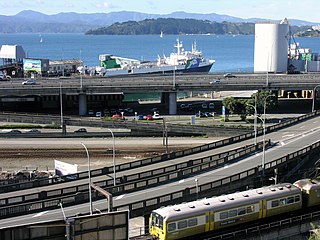
Transport in New Zealand has always faced many challenges, given the country's mountainous topography and a relatively small population, which is located mostly near its long coastline. Before Europeans arrived, Māori either walked or used watercraft on rivers and along the coasts. European shipping and railways revolutionised the transport of goods and people, before themselves being overtaken by road and air transport, which are now the dominant forms. Bulk freight still continues to be transported by coastal shipping and by rail, and there are attempts to (re)introduce public transport as a major transport mode in the larger population centres.

The Northland Region is the northernmost of New Zealand's 16 local government regions. New Zealanders sometimes refer to it as the Winterless North because of its mild climate all throughout the year. The major population centre is the city of Whangārei, and the largest town is Kerikeri. At the 2018 New Zealand census, Northland recorded a population growth spurt of 18.1% since the previous 2013 census, placing it as the fastest growing region in New Zealand, ahead of other strong growth regions such as the Bay of Plenty Region and Waikato.
Te Manatū WakaMinistry of Transport is the public service department of New Zealand charged with advising the New Zealand Government on transport policy. The Ministry works closely with other government transport partners, including the New Zealand Transport Agency (NZTA) to advance their strategic objectives.

The Royal Society Te Apārangi is a not-for-profit body in New Zealand providing funding and policy advice in the fields of sciences and the humanities. These fundings are provided on behalf of the New Zealand Ministry of Business, Innovation and Employment.
Greenpeace Aotearoa (GPAo) is one of New Zealand's largest environmental organisations, and is a national office of the global environmental organisation Greenpeace.

Carbon pricing is a method for governments to mitigate climate change, in which a monetary cost is applied to greenhouse gas emissions. This is done to encourage polluters to reduce fossil fuel combustion, the main driver of climate change. A carbon price usually takes the form of a carbon tax, or an emissions trading scheme (ETS) that requires firms to purchase allowances to emit. The method is widely agreed to be an efficient policy for reducing greenhouse gas emissions. Carbon pricing seeks to address the economic problem that emissions of CO2 and other greenhouse gases are a negative externality – a detrimental product that is not charged for by any market.

Fossil fuel phase-out is the gradual reduction of the use and production of fossil fuels to zero, to reduce deaths and illness from air pollution, limit climate change, and strengthen energy independence. It is part of the ongoing renewable energy transition, but is being hindered by fossil fuel subsidies.

Despite abundant natural resources and a relatively small population, New Zealand is a net importer of energy, in the form of petroleum products. The ratio of non-renewable and renewable energy sources was fairly consistent from 1975 to 2008, with about 70 per cent of primary energy supply coming from hydrocarbon fuels. This ratio decreased to about 60 per cent in 2018. The proportion of non-renewable energy varies annually, depending on water flows into hydro-electricity lakes and demand for energy. In 2018, approximately 60% of primary energy was from non-renewable hydrocarbon fuels and 40% was from renewable sources. In 2007 energy consumption per capita was 120 gigajoules. Per capita energy consumption had increased 8 per cent since 1998. New Zealand uses more energy per capita than 17 of 30 OECD countries. New Zealand is one of 13 OECD countries that does not operate nuclear power stations.
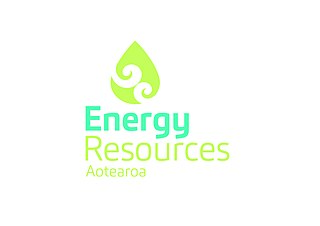
Energy Resources Aotearoa, formerly known as Petroleum Exploration and Production Association of New Zealand (PEPANZ) until March 2021, is an incorporated society based in Wellington which represents the wider energy resources sector, including the upstream oil and gas sector in New Zealand. They work with central and local government, stakeholders and the wider public. As part of this they hold events, publish educational booklets, make numerous submissions and run the social media campaign Energy Voices to promote use of natural gas.
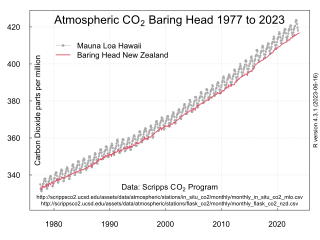
Climate change in New Zealand involves historical, current and future changes in the climate of New Zealand; and New Zealand's contribution and response to global climate change. Summers are becoming longer and hotter, and some glaciers have melted completely and others have shrunk. In 2021, the Ministry for the Environment estimated that New Zealand's gross emissions were 0.17% of the world's total gross greenhouse gas emissions. However, on a per capita basis, New Zealand is a significant emitter, the sixth highest within the Annex I countries, whereas on absolute gross emissions New Zealand is ranked as the 24th highest emitter.

The New Zealand Emissions Trading Scheme is an all-gases partial-coverage uncapped domestic emissions trading scheme that features price floors, forestry offsetting, free allocation and auctioning of emissions units.

Energy in Australia is the production in Australia of energy and electricity, for consumption or export. Energy policy of Australia describes the politics of Australia as it relates to energy.
The Climate Change Response Amendment Act 2008 was a statute enacted in September 2008 by the Fifth Labour Government of New Zealand that established the first version of the New Zealand Emissions Trading Scheme, a national all-sectors all-greenhouse gases uncapped and highly internationally linked emissions trading scheme. After the New Zealand general election, 2008, the incoming National-led government announced that a Parliamentary committee would review the New Zealand emissions trading scheme and recommend changes. Significant amendments were enacted in November 2009. Obligations for pastoral agriculture were further delayed. Obligations for energy and industry were halved via a "two for one" deal. Free allocation of units to industry was made uncapped and output based and with a slower phase-out. A price cap of $25 NZD per tonne was introduced.

Approximately 44% of primary energy is from renewable energy sources in New Zealand. Approximately 87% of electricity comes from renewable energy, primarily hydropower and geothermal power.

Roderick Marshall Carr is a New Zealand businessman and administrator. He retired from his position as vice-chancellor of the University of Canterbury in 2019 and has been a chairman of the board of the Reserve Bank of New Zealand, and a director of Lyttelton Port Company, Taranaki Investment Management and Canterbury Employers’ Chamber of Commerce. In 2019, Carr was appointed as Chair-designate for the Climate Change Commission and has been confirmed in that role for five years following the passing of the Climate Change Response Amendment Act. Carr has been partially sighted and legally blind since birth.

Chlöe Charlotte Swarbrick is a New Zealand politician. Following a high-profile but unsuccessful run for the 2016 Auckland mayoral election, she became a parliamentary candidate for the Green Party of Aotearoa New Zealand, standing in the 2017 New Zealand general election, and was elected as a member of the New Zealand Parliament at the age of 23. In the 2020 election, Swarbrick was elected as the Member of Parliament for Auckland Central, becoming the second Green Party MP ever to win an electorate seat, and the first without a tacit endorsement from a major party leader. She retained Auckland Central in the 2023 election. In March 2024, she was elected co-leader of the Green Party. Swarbrick is Green Party Spokesperson for Mental Health, Drug Law Reform, Revenue, Climate Change, and Finance.
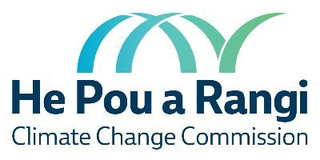
The Climate Change Commission is an independent Crown entity that advises the New Zealand Government on climate change policy and monitors the government's progress towards New Zealand's emission reduction goals within the framework of the Climate Change Response Amendment Act. The Commission was established as the successor to the Interim Climate Change Committee following the passage of the Zero Carbon Act in November 2019.
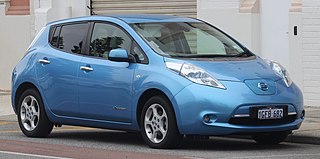
The initial adoption of plug-in electric vehicles in New Zealand was supported by New Zealand Government policies, including monetary incentives such as electric vehicle discounts, exemptions from road user charges, and electric vehicle sales targets. By 2023 year-end, there were 106,942 registered plug-in electric vehicles in New Zealand, consisting of 76,550 battery-electric vehicles (BEV) and 30,392 plug-in hybrid vehicles (PHEV), together making up 2.2% of the national fleet of 4.8 million vehicles. In 2023, 27.2 percent of all new car registrations were plug-in electric vehicles.

New Zealand coal reserves are in excess of 15 billion tonnes, mainly in Waikato, Taranaki, West Coast, Otago and Southland. Over 80% of the reserves are in Southland lignite deposits. These were worth $100 billion in 2010.
Climate finance in New Zealand includes a mixture of domestic and internationally sourced funding for climate change adaptation, mitigation and resilience.















